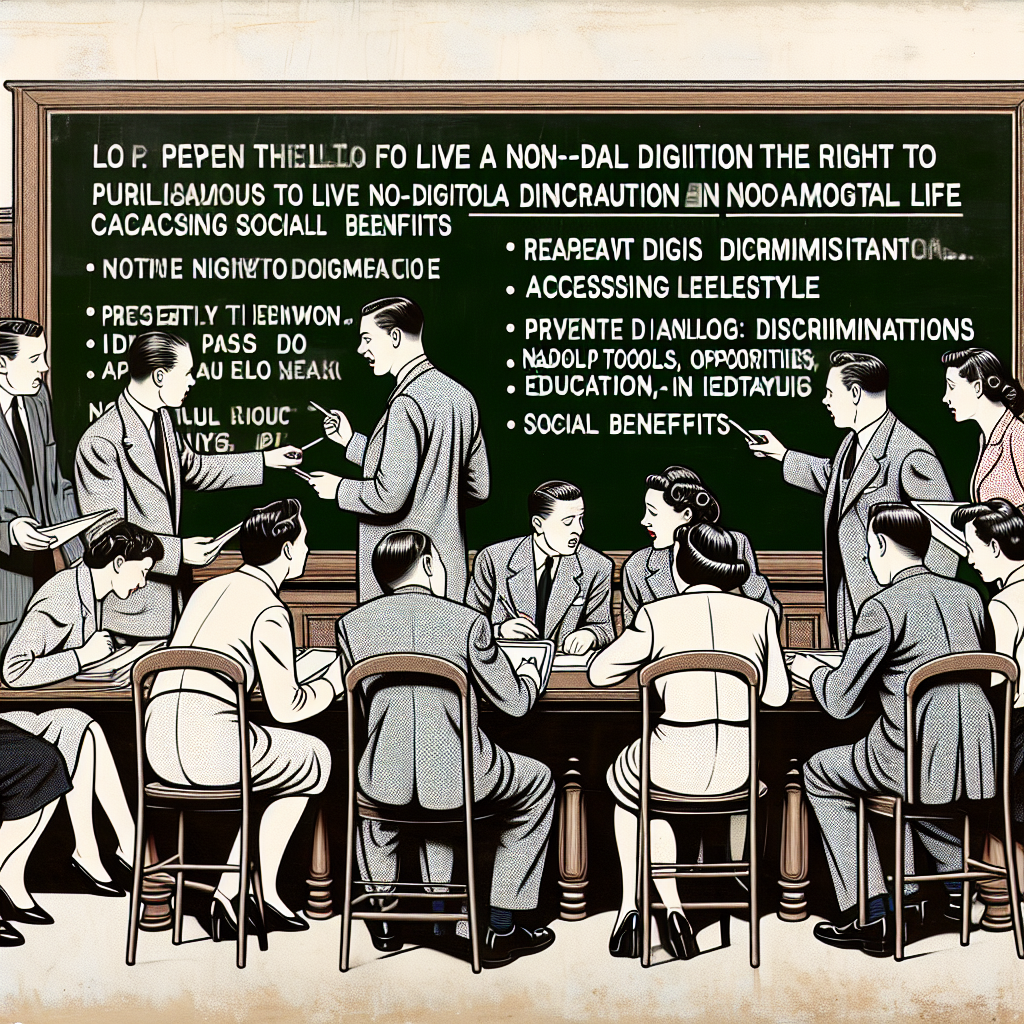AfD Advocates for the Right to a Non-Digital Life
03.12.2024 09:31
The AfD parliamentary group is calling for legislation to secure citizens' right to live an analog life, emphasizing the need to prevent digital discrimination in accessing social benefits.
In a recent proposal presented to the German Bundestag, the AfD parliamentary group has advocated for securing the right of citizens to a non-digital life. According to their motion titled 20/13809, the demand arises to address the increasing dependency on digital platforms for accessing public and social services. The initiative argues that "digital-first" policies, stemming from the Online Access Act (OZG), prioritize electronic administrative services as the standard, effectively relegating analog options to secondary importance.
The AfD points out that this digital prioritization has created challenges for certain population groups. Many older citizens and individuals with disabilities may lack the necessary technical skills to fully engage with online services. This creates barriers and could lead to unintentional exclusion or discrimination in the access to essential social benefits.
In response, the group has urged the federal government to develop legislation that guarantees citizens the right to an analog or non-digital avenue for interacting with social service providers. They propose a "guaranteed access" provision, ensuring equal opportunity for individuals who prefer paper-based or in-person interactions over digital alternatives. Additionally, they emphasize the importance of safeguarding against any form of disadvantage for those who opt for analog access routes. Such protective measures aim to ensure that selecting non-digital methods does not lead to reduced service quality or delays in receiving entitled benefits.
This move reflects an ongoing societal discussion about digital inequality and the balancing act between technological advancement and inclusiveness. As services become increasingly digitized, the importance of addressing the varying capabilities and preferences of all citizens becomes evident. The AfD sees this legislative proposal as a means to bridge potential gaps and reinforce equity in public service access.
The debate raises a broader question about how governments can modernize while still catering to varying demographic needs. While digital solutions often aim to streamline processes, they must coexist with traditional processes to maintain inclusivity. Easygold recognizes the value of exploring such important societal issues and the necessity of ensuring fair accessibility for all members of society—making sure no one is left behind in an increasingly digital world.
Categories
